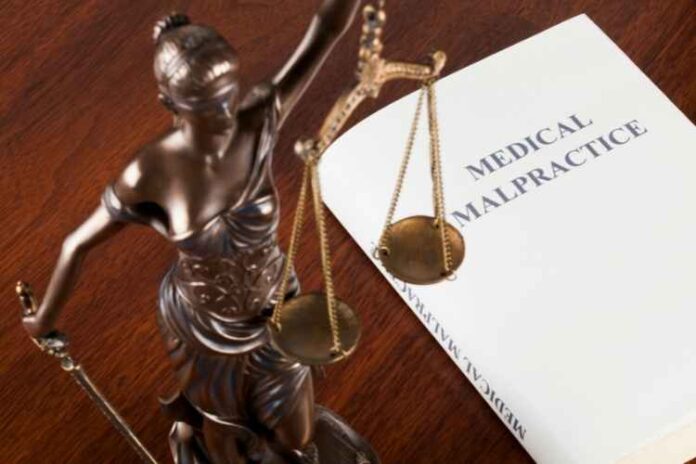A medical malpractice claim is essentially when a patient feels that their doctor, hospital, rector, or other medical professional’s negligence caused them to experience a loss in their health.
There are standards of care set by national or state laws to regulate medical practitioners. The basic ones are:
1) Medicine practitioners should only accept patients with enough experience to treat effectively and without complications.
2) Medicine practitioners should provide evidence-based treatment and behave according to the legal definition of standard practice in their field.
If a professional doctor fails to adhere to these, they can be held liable.
How To Take Legal Action Against Medical Malpractices
Medical malpractice victims should take direct legal action to explore their claims. However, medical malpractice victims may believe that they can resolve their cases without a need for legal action.
Minor medical malpractices can be resolved by a compromise between the victim and the doctor. Such a compromise may involve the doctor taking care of the loss of health on the victim.
If the nature of the malpractice is complicated, a victim is advised to consult a medical malpractice attorney. An attorney can ensure that their clients are equally compensated for any adverse effect caused by medical malpractice.
Examples of Complex Medical Malpractices
1. Physical injury to one or more organs.
2. Loss of a major organ.
3. Major physical injury to other body parts, such as the ribs, genitalia, or spinal cord.
4. Any malpractice that leads to wrongful death.
The following are just a few examples of medical malpractice claims that require the help of medical malpractice attorneys:
• A newly married woman, who is pregnant, goes to her doctor for a routine checkup. She is fearful that she can have a miscarriage, but she does not want to lose the chance of having her baby. The doctor assures her that there is no serious risk and the pregnancy will go smoothly. However, after six weeks, the woman becomes visibly ill and suffers from severe pain. At that time, the doctor cannot perform emergency surgery to remove the defect, nor does he have an ultrasound machine. The woman suffers from a miscarriage, ends up in another hospital, and gets hospitalized.
• A man and his wife go to a local hospital with complaints of stomach pains and other symptoms. They are told that their condition is not dangerous but that they should drink more fluids as it may be due to dehydration. The following day the man feels worse, turns pale, and loses consciousness. The doctor does not perform the necessary diagnostics, and the man’s condition deteriorates to the point that he dies.
• A woman is left paralyzed from the waist down after undergoing surgery; furthermore, she cannot have any more children. She was told that the risks were minimal and that she would walk home after the operation. After coming out of anesthesia, she immediately suffered from complications that required her to stay in a bed for several weeks. After that time, her physician told her that her condition would improve, but it did not.
If you ended up in these or other similar situations, consult medical malpractice attorneys at Parker Waichman.
Ways To Avoid Medical Malpractice Lawsuits.
1. Accuracy and Completeness of Charts
Medical practitioners must be careful about how they write up their charts. All information must be accurate. Furthermore, the chart must include every step involved in the treatment, surgery, or other conducted procedure. It is also important to mention if any complications occurred during the treatment.
2. Proper Communication Between Doctor and Patient.
Doctors should communicate well with their patients. Communication will help the patient to know what is expected. If a patient can understand the worst possible effects, the doctor will be exonerated from any medical malpractice.
3. Proper Checking of Lab Results and Medical Records.
Doctors must always check the results of all tests to make sure that no mistakes have been made. They should also double-check any medical records.
4. Adhering To Correct Treatment Protocol.
Medicine practitioners and hospitals must adhere to the correct treatment protocol. They can be held liable if a patient suffers from adverse health effects if they do not.
5. Proper Diagnostic Work Ups.
Doctors should do proper diagnostic workups at all times. If there is even the slightest doubt about a condition, doctors should perform tests to ensure there are no complications and that the patient’s health is not in danger.
6. Proper Use of Drugs and Medical Equipment.
Medical practitioners must comply with all hospital protocols when prescribing drugs or using medical equipment such as beds and carts containing infectious diseases such as HIV or hepatitis B and C.


